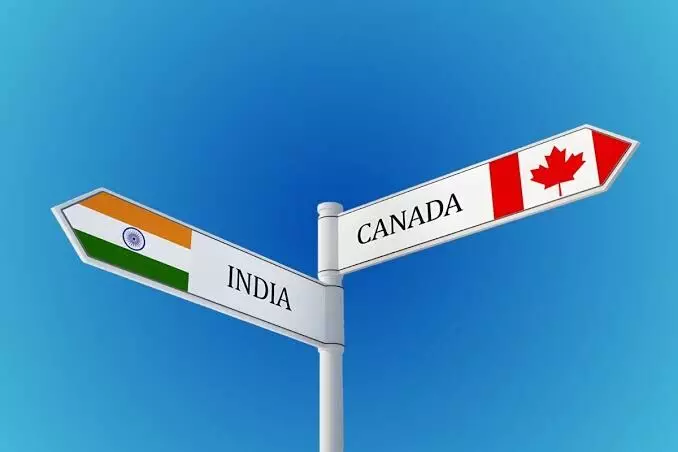India, Canada issue travel advisories for citizens, urge them to exercise caution
The allegations and controversies surrounding the killing of Hardeep Singh Nijjar have put pressure on both governments to find a diplomatic solution.
By Anoushka Caroline Williams
Representational Image.
Hyderabad: Tensions between India and Canada have escalated as both nations issue advisories, urging their citizens to exercise caution while residing or traveling in the respective countries.
These advisories come in the wake of allegations and controversies surrounding the alleged killing of Khalistani terrorist Hardeep Singh Nijjar and mutual concerns regarding anti-India activities.
Mutual Concerns:
The Indian government, on Wednesday, issued an advisory to Indian nationals and students in Canada, urging them to "exercise utmost caution" due to "growing anti-India activities and politically-condoned hate crimes and violence."
This advisory follows a similar one issued by the Canadian government for its citizens in India.
The Khalistani Controversy:
The root of this escalating dispute lies in the allegations made by Canadian Prime Minister Justin Trudeau regarding the alleged involvement of Indian agents in the killing of Hardeep Singh Nijjar.
This has led to a diplomatic standoff between the two nations. Trudeau's statements have fueled tensions and raised concerns about the potential impact on Indian citizens living in Canada.
Indian Advisory:
In response to the situation, the Indian advisory has raised eyebrows. Priya Sharma, a student in Toronto, expressed her concerns, stating, "While I understand the need for caution, it's disheartening to see such advisories being issued. It creates an atmosphere of fear and uncertainty for Indian students who are here to pursue their dreams."
Canadian Perspective:
On the other side of the spectrum, the Canadian advisory for its citizens in India also highlights the seriousness of the situation. It underlines the importance of staying vigilant and informed while traveling or residing in India during these uncertain times.
Diplomatic Channels:
Both nations have called for restraint and the use of diplomatic channels to resolve the matter. The exchange of advisories underscores the delicate nature of the ongoing dispute and the potential repercussions for citizens of both countries.
Global Concerns:
The travel advisories have attracted global attention, with many nations and international bodies urging India and Canada to find a peaceful resolution to their differences.
The United Nations has called for dialogue and peaceful negotiations to prevent further escalation. The travel advisories issued by India and Canada serve as a stark reminder of the fragile nature of international relations.
The allegations and controversies surrounding the killing of Hardeep Singh Nijjar have put pressure on both governments to find a diplomatic solution.
While the advisories aim to ensure the safety of their citizens, they also underscore the need for open communication and cooperation between nations to maintain peace and stability in an interconnected world.
The eyes of the international community are now on India and Canada, hoping for a peaceful resolution to this diplomatic impasse.